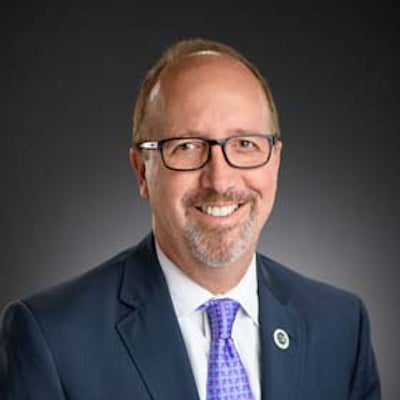Jim Beam column: Another pay raise ‘bites dust’
Published 7:20 am Saturday, May 20, 2023

- Louisiana state Rep. Joe Marino, an independent from Gretna, sponsored this year's attempt to give legislators a pay increase, the first since 1980, but his bill was defeated.(Photo courtesy of legislative website).
Louisiana legislators have tried and failed once again to raise their base pay, which in 1980 was increased to $16,800. The closest they came to succeeding was in 2008, but a bill that passed both houses was vetoed by then-Gov. Bobby Jindal.
That legislation would have increased legislative base pay from $16,800 to $37,500. The pay raise bill cleared the Senate 20-16 with the exact majority it needed. The House vote was 56-45, three more votes than the 53 majority needed.
Jindal had promised he would sign the bill, but he changed his mind and vetoed it, He admitted he said he would sign it, but Jindal said the veto was necessary to avoid slowing down his reform movement.
Had the bill been signed, legislative salaries would have been adjusted annually if there were increases in the consumer price index (CPI). Jindal said that was another reason for his veto.
Rep. Joe Marino, an independent from Gretna, sponsored this year’s proposal that would have increased the base pay from $16,800 to $39,065, which is 75% of the state’s median household income. The salaries would have changed every four years based on the median household income.
Marino’s bill got out of the Committee on House and Governmental Affairs with an 8-4 vote. It was recommitted to the House Appropriations Committee because of its $1.8 million cost in fiscal year 2023-24 and $3.5 million annual cost over the next four years.
You could see how the wind was blowing in that committee when Rep. Jerome “Zee” Zeringue, R-Houma, and chairman of the committee, said at the beginning of the hearing the issue was a question of timing.
The committee rejected the bill with a 14-5 vote. Three Southwest Louisiana lawmakers on the committee who voted against the bill were Reps. Dewith Carrier, R-Oakdale; Brett Geymann, R-Moss Bluff; and Troy Romero, R-Jennings.
Zeringue apparently had a couple of reasons for saying it was a question of timing. Legislators have to run for re-election on Oct. 14 and the House has already sent a state budget to the Senate without a pay increase for teachers that had been recommended in Gov. John Bel Edwards’ proposed budget.
Rep. Rick Edmonds, R-Baton Rouge, followed Zeringue by calling that budget “remarkable” and “unbelievable” because it pays off state pension debt. However, it doesn’t include those teacher pay increases.
Some legislators on the committee spoke in favor of the proposed increase, but they were outnumbered by those who were opposed. They argued the time wasn’t right because lawmakers also get $6,000 in expenses that have to be reported as income, and legislators knew what the pay was when they ran for office.
Marino had an excellent explanation for sponsoring the increase. First, he has chosen not to run for re-election and wouldn’t benefit. He said statewide elected officials, sheriffs, district attorneys, and state employees have all received a pay increase since 1980.
Governors have gone from $52,400 to $130,000 today. Statewide elected officials have gone from $37,500 to $115,000 today. Sheriffs have gone from $44,400 to almost $195,000, Marino said.
“No one leaving the Legislature is leaving for a lower-paid job than this,” Marino said. The pay in Alabama is nearly $54,000 and in Arkansas it is over $44,000. Legislative base pay is also higher in six other southern states.
Former Rep. Terry Landry, D-New Iberia, sponsored a constitutional amendment at the 2019 legislative session that would have set up an independent compensation commission to establish legislative compensation, benefits and expense allowances.
Voters would have had the last word at the statewide election on Oct. 12, 2019. The proposed amendment got through two committees without opposition. The House vote was 50-40, which was 20 votes short of the 70 votes (two-thirds needed for amendments). It never came up for another vote.
The pay increase that Jindal vetoed in 2008 came during the beginning of that Legislature’s first year, which is probably a good time to propose an increase. However, it should not become effective until the next term of office. This election year was a bad time to do it.
Since legislators have an unvouchered $6,000 expense account that has to be reported as income, their base salary is actually $22,800. I called them “crafty rascals” in a June 22, 1997, column for calling that $6,000 an expense account.
Nevertheless, the work they do has become extremely complex and time consuming and a pay increase of some kind is worth considering. Marino said if they had received cost-of-living increases since 1980 they would be making $60,000 annually today.




